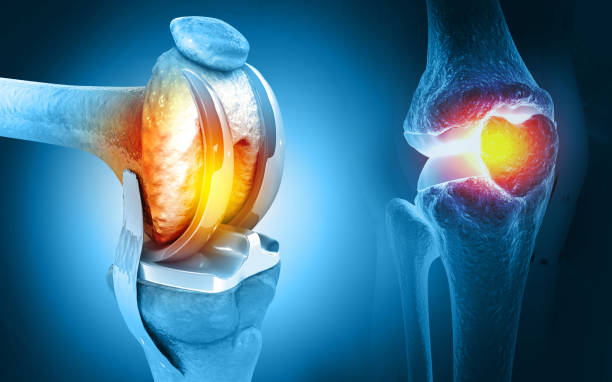Many patients who suffer from severe knee pain benefit from knee replacement surgery, which can provide significant relief and better mobility. However, like any major operation, it carries inherent risks and problems. Understanding these potential difficulties will allow you to make a more better decision and prepare for the treatment. In this article, we’ll go over some things that can go wrong during or after knee replacement surgery so you know what to look out for and discuss with your doctor.
Complications of knee replacement surgery
Knee replacement surgery is usually a safe and secure surgery. However, like every surgery, it possesses its complications and risks. Here are some of the complications associated with knee replacement surgery:
Infection
It is one of the main complications that arises after getting a knee replacement surgery. Bacteria can enter during or after the surgery and can cause inconvenience to the patients. These infections can vary from mild to severe and affect the newly replaced joints. Its symptoms include:
- Redness
- Swelling
- Warmth around the knee
- Increased pain
- Sometimes fever
You must ensure that your surgeon has sterilised the affected area, and you must regularly take antibiotics to heal properly.
Blood Clots
You barely move your leg after the surgery is complete which makes it easier for the blood clot formation. The clot is formed in the veins of your leg also known as deep vein thrombosis (DVT). Sometimes the clot breaks free and travels to your lungs and causes a hazardous condition called pulmonary embolism. Doctors often recommend getting up and moving as soon as possible after surgery to reduce the risk of blood clots. Some of its symptoms are:
- Swelling
- Pain
- Warmth
- Redness in the calf or thigh
Reaction to anaesthesia
There are several varieties of anaesthesia, including general anaesthesia, which puts you to sleep, and regional anaesthesia, which only numbs your lower body. Anaesthesia is typically harmless. However, it can occasionally cause complications. To avoid serious complications, the anesthesiologist will check your medical history and any drugs you are currently on. Some of the signs of anaesthesia include:
- Nausea
- Vomiting
- Dizziness after waking up
- Itching
- Rash
- Difficulty breathing.
Nerve damage
Nerves surrounding the knees are occasionally mistakenly harmed during surgery. In most cases, nerve damage is transient and will improve over time as the nerve heals. However, in rare cases, the injury is irreversible, resulting in long-term problems with feeling or movement. Surgeons take tremendous care not to damage nerves during surgery. They employ precise strategies and instruments to reduce risk.
Pain and stiffness
While the procedure aims to relieve arthritis or injury pain, it may cause temporary discomfort as your body heals. It is usual to experience knee pain following surgery. This soreness normally subsides as you heal. Your doctor will prescribe drugs to help you manage the discomfort and feel more comfortable.
Stiffness is another prevalent issue. Following the procedure, your knee may feel tight and difficult to move. This rigidity makes it difficult to bend or straighten your leg fully. Physical therapy and exercises are essential components of your recovery since they assist in increasing your knee’s flexibility and strength.
Implant issue
Implant complications might develop following knee replacement surgery. The implant is an artificial joint that replaces the injured knee. While these implants are intended to endure a long period, complications can occasionally develop. Some of the implant issues are:
- Loosening: Over time the implant may loosen, producing pain and making it difficult to utilise your knee. It might occur as a result of regular wear and tear or when the bone surrounding the implant weakens.
- Wear and tear: The implant’s materials, like any mechanical part, might wear down over time, particularly if you are very active. It can cause pain and impaired function.
- Dislocated implant: The implant’s components can occasionally slip out of position, causing the knee to feel unstable or even give out.
In rare situations, the body may react to the components used in the implant, resulting in an allergic reaction. It might cause pain and swelling near the knee.
Get safe knee replacement surgery with Dr Simon.
Are you considering knee replacement surgery? Choose Dr. Simon for your procedure to ensure you receive the finest possible care. Dr. Simon is a highly trained and experienced orthopaedic surgeon who specialises in knee replacements. With his rigorous approach and attention to patient care, you may be confident that you are in capable hands.
- He has great expertise and knowledge in this field.
- The team provides personalised care for each patient.
- He is equipped with all the modern techniques to ensure the surgery is accurate and painless.
- He ensures the patient is comfortable throughout the process, from consultation to aftercare.
- He has a promising track record.
Book a consultation with Dr Simon and get the best knee replacement surgery for a better life.













